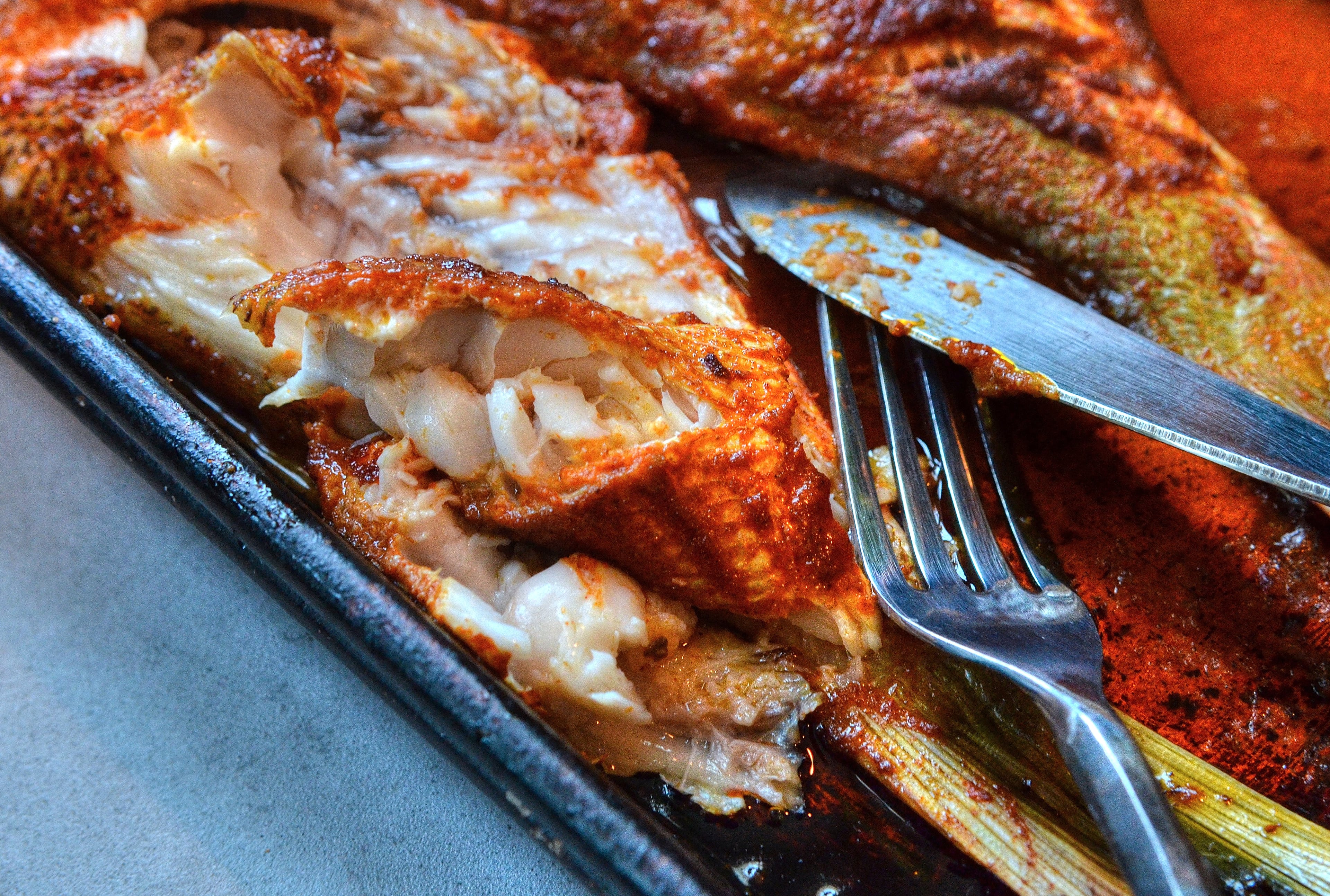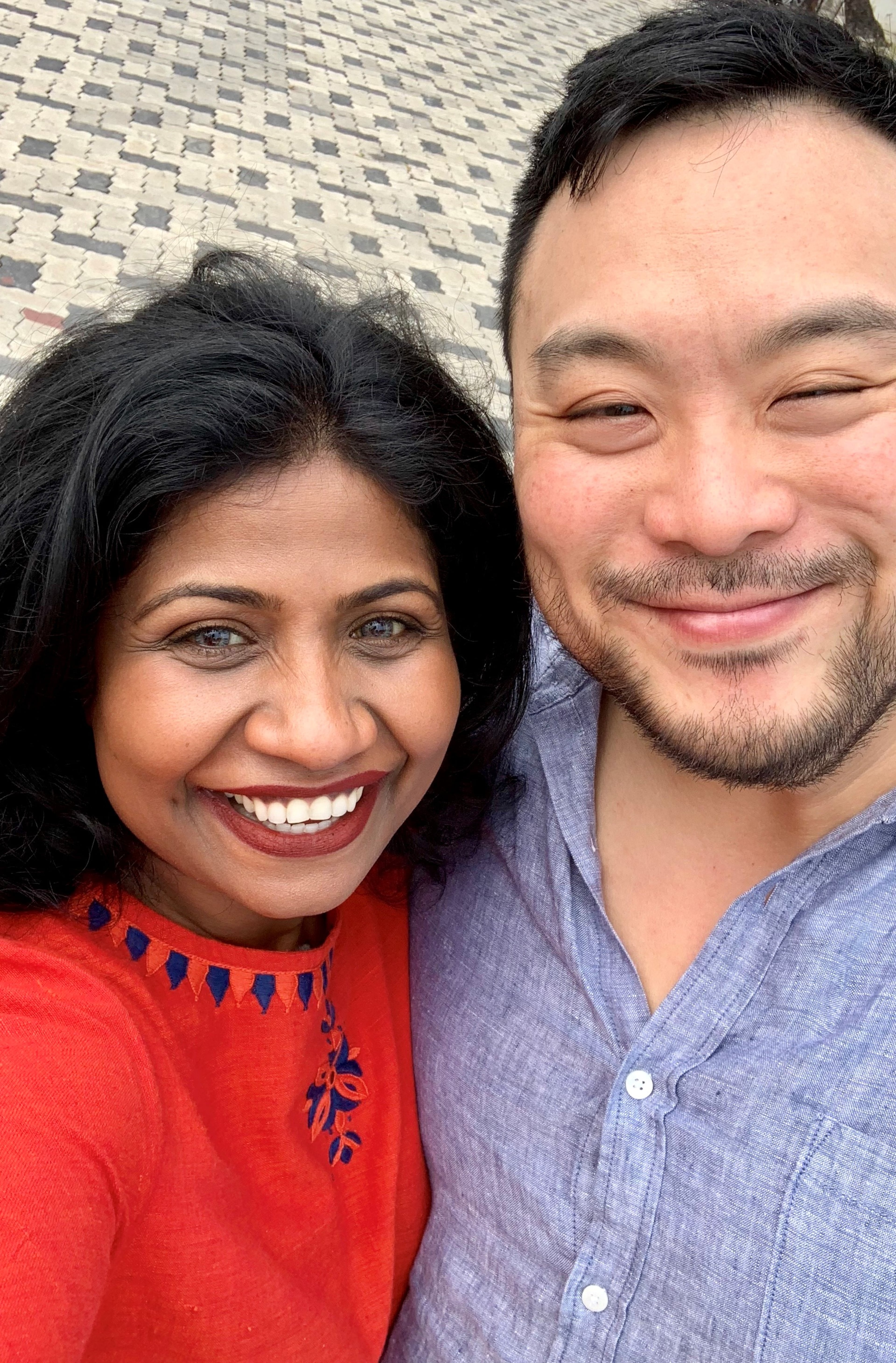Atlanta chef - and Kerala native - Asha Gomez fishes for home









As I sat sipping chai and sharing stories about my recent trip to Kerala with my teenage son, I paused to take in the heady aroma of spices. I curled my fingers around my cup and mentally recalled all of the familiar flavors that went into the tea: ginger, cardamom, black pepper and a delectable tea strain from Malabar.
The clinking of our tea cups brought me back to the present. My son, toasting my return, leaned forward, smiling, and said, "Welcome home, Mom."
Home. The word sunk in comfortably around me like my favorite sweatshirt. They say that the truth comes from the mouth of children, and my son, without meaning to, had pointed to a truth I hadn’t yet dealt with. True, I had just returned to our home in Decatur. But I had arrived back from Kerala, India, where I was born and raised. It, too, is a place I once knew deeply as home. When my son welcomed me home, what he couldn’t know and what I wasn’t yet ready to unpack was the dichotomy of what “home” means to me.

For the better part of three decades, I’ve spent my life in the U.S., having arrived at the age of 18. I’ve made my home in the American South to the point that I crave warm biscuits and gravy for breakfast, not masala dosa. Yet every time I go back to India, little pangs of nostalgia remind me of the life I left behind.
When I’m there, I’m entranced by the beauty of the land and its people. I can’t help but become transfixed by the shards of memory from an adolescence formed against the backdrop of gently swaying coconut palms and the perfume of mango orchards. Nostalgia has a way of romanticizing things. The hard truth I faced on my most recent trip is that while Kerala shaped me, I often feel less rooted there. It is a home that I no longer see myself living in.
I met my mom at 3 a.m. in Trivandrum airport. I arrived bleary-eyed and jet-lagged, but grateful that this city, the state’s capital, was still bustling even in the wee hours of the early morning. I convinced my mother to stop at a roadside chai stall. We sat on the steps and shared tea served the traditional Kerala way in small roundish glasses that transferred the warmth of the spiced liquid gently onto our palms, our fingers curled around the barrels. This was one of the most beautiful moments I spent with my mother on this trip. I hungrily consumed it.
“It is different for me,” she said, trying to explain the generational differences between the way we looked at life in this sleepy beach town. “This place and this society are what keep my connection whole,” she continued.
I smiled at her. “I’m connected too, Mom, but my connection is different …” I let my voice trail off, unwilling to grapple with what I was feeling.

During this visit home, I was in town to shoot a Netflix special with chef David Chang for the second season of his popular food travel show, “Ugly Delicious.” Kerala is a fantastically diverse state known for its centuries of peaceful cultural coexistence. On any given day, we heard church choirs in the morning beautifully juxtaposed with temple bells and mosque prayers in the evening. We observed the ebb and flow of fishing boats as they embarked early and returned with their haul by sunset.

Over the course of two weeks, we visited temple celebrations, experiencing thousand-year-old recipes made and remade. A highlight was the ceremonial 21-dish vegetarian feast called Sadya.
We traversed fishing villages where the fisherfolk took the sea’s bounty and, with considerable ingenuity and finesse, transformed them into memorable delicious dishes like masala-rubbed fish wrapped in banana leaves and fire-roasted on Kerala beaches.
Fish molee is a coconut milk stew. Influenced by the Portuguese but subtly flavored with local spices, it is an example of how Kerala embraces and introduces new ingredients into its cuisine.
While visiting churches and mosques, where centuries of trade, cultural collisions and coexistence has led to fascinating culinary adaptations and enduring food traditions, I realized that my real remaining connection to my birthland is the food.
I am bound to Kerala by the recipes my mother cooked to nourish her family in a small apartment in Queens, N.Y. These recipes connected me back thousands of miles to India.
The cultural DNA of food is what has connected and continues to connect every immigrant from their old home to their new home. For every new immigrant that arrives here from distant lands, their ingredients and recipes help weave their unique story and add to the many flavors that quilt the American food table.
I am home. Now I must go find some Tellicherry black pepper biscuits smothered in gravy and a spoonful of clove-tomato jam.

Salmon Fish Molee
To streamline the cooking process, prepare the tempered oil garnish, also known as a tarka, while the fish is steaming.

Spice-rubbed Roasted Snapper
Ask your fishmonger to clean and scale the fish, but keep the head on. I love serving this roast fish alongside a crisp green salad.

Green Masala Shrimp
The dish is especially tasty in a soft taco with romaine and tomatoes.
Asha Gomez is an Atlanta chef and the author of the cookbook “My Two Souths” and the forthcoming “Color Full: A World of Bright Flavors From My Kitchen,” to be published in spring 2020.
Read more stories like this by liking Atlanta Restaurant Scene on Facebook, following @ATLDiningNews on Twitter and @ajcdining on Instagram.

